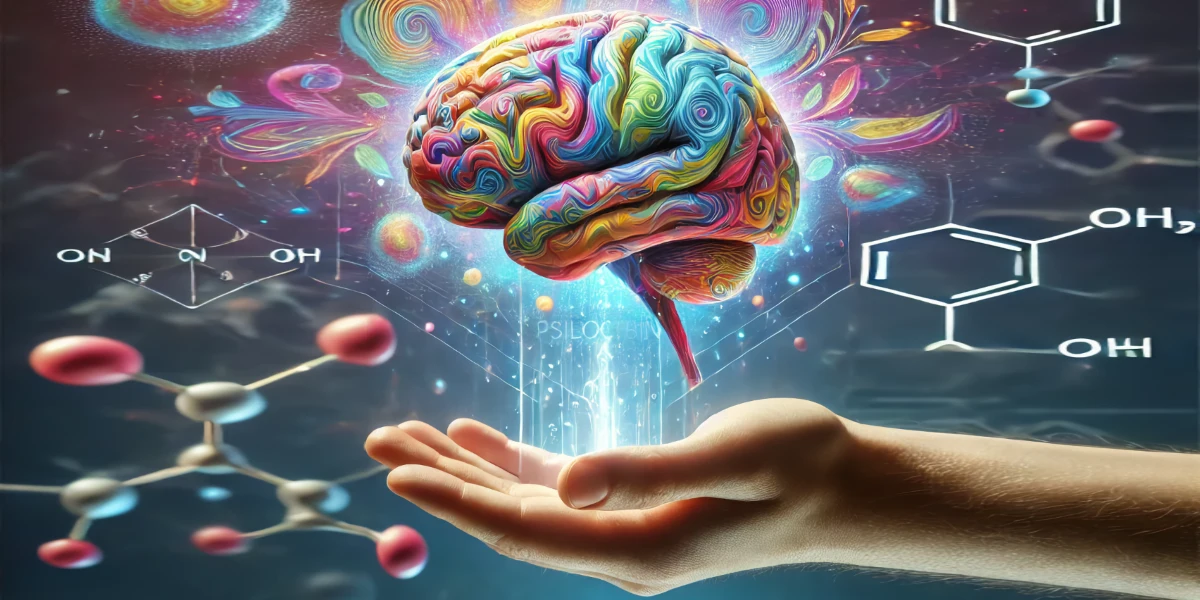

Psilocybin, the active compound in certain mushrooms, is gaining significant attention for its potential to enhance brain health and promote mental well-being. This article delves into recent scientific studies that explore how psilocybin affects brain function, promotes neuroplasticity, and contributes to long-term mental health.
Psilocybin is a naturally occurring psychedelic compound that, once ingested, is converted into psilocin in the body. Psilocin interacts with serotonin receptors in the brain, particularly the 5-HT2A receptor, which plays a crucial role in mood, perception, and cognition. This interaction leads to altered brain activity and the characteristic psychedelic effects associated with psilocybin use.
Neuroplasticity refers to the brain’s ability to reorganize and form new neural connections throughout life. This process is essential for learning, memory, and recovery from brain injuries. Recent studies suggest that psilocybin can enhance neuroplasticity, making the brain more adaptable and resilient.
For instance, research has shown that psilocybin can increase the growth of dendritic spines, which are small protrusions on neurons that facilitate synaptic connections. Enhanced dendritic spine growth improves the brain’s ability to process information and adapt to new experiences, contributing to overall brain health.
Psilocybin has also been found to enhance brain connectivity, allowing different regions of the brain to communicate more effectively. This increased connectivity is believed to underlie the profound changes in consciousness and perception experienced during a psilocybin journey. Enhanced brain connectivity can lead to improved cognitive flexibility, creativity, and problem-solving abilities.
Several scientific studies have explored the effects of psilocybin on brain health. One notable study conducted by researchers at Imperial College London used functional magnetic resonance imaging (fMRI) to observe brain activity in individuals who had taken psilocybin. The study found that psilocybin reduced activity in the default mode network (DMN), a brain network associated with self-referential thoughts and the sense of ego. By temporarily disrupting the DMN, psilocybin allows for a state of “ego dissolution,” where the boundaries between self and the external world blur. This can lead to profound insights and a sense of interconnectedness, promoting mental well-being.
Research has also shown that psilocybin can be effective in treating depression. A study published in the journal “JAMA Psychiatry” found that psilocybin-assisted therapy resulted in significant reductions in depressive symptoms in patients with major depressive disorder. The participants reported improvements in mood, emotional processing, and overall mental health. These findings suggest that psilocybin’s effects on brain connectivity and neuroplasticity may contribute to its antidepressant properties.
Another area of research focuses on psilocybin’s potential to reduce anxiety. Studies have shown that psilocybin can alleviate anxiety in patients with life-threatening illnesses, such as cancer. By facilitating deep introspection and emotional processing, psilocybin helps patients confront and accept their fears, leading to long-lasting anxiety relief. This therapeutic effect is believed to be linked to psilocybin’s ability to modulate brain activity and promote a sense of connectedness and peace.
The long-term benefits of psilocybin on mental well-being are still being explored, but preliminary findings are promising. Psilocybin’s capacity to enhance neuroplasticity and brain connectivity suggests that it could have lasting positive effects on mental health. By fostering new neural pathways and improving brain function, psilocybin may help individuals develop healthier cognitive habits and emotional resilience.
Furthermore, the profound insights and emotional breakthroughs often experienced during psilocybin journeys can lead to lasting changes in perspective and behavior. Many individuals report feeling more connected to themselves and others, experiencing increased empathy, and gaining a deeper understanding of their emotions and life circumstances.
Psilocybin holds significant promise for enhancing brain health and promoting long-term mental well-being. Its ability to promote neuroplasticity, enhance brain connectivity, and reduce symptoms of depression and anxiety makes it a powerful tool in the field of mental health. As research continues to expand, we can expect to gain a deeper understanding of how psilocybin can be used to support mental health and well-being.
For those interested in exploring the benefits of psilocybin, it is important to source it from reputable vendors. To learn more about psilocybin brain health and purchase high-quality products, visit Shroomrise. Your journey to improved brain health and mental well-being starts with informed and safe choices.

